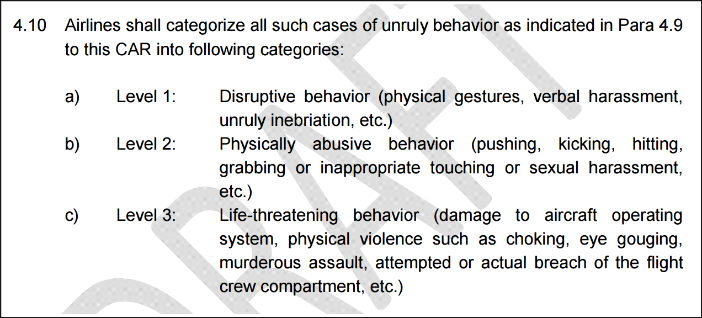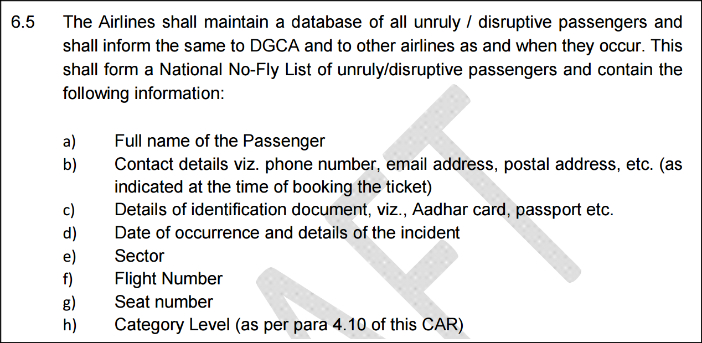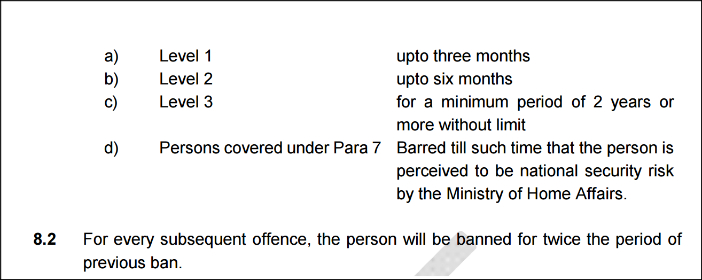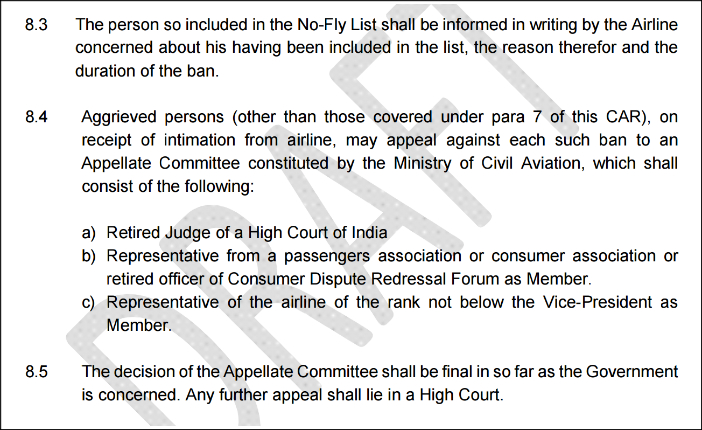[orc]The Ministry of Civil Aviation has revised the existing policy on handling unruly passengers on flights. Among other things, the new rules classify the behavior of such passengers into 3 levels with relevant punishment.
After Shivsena MP Ravindra Gaikwad manhandled the staff of Air India, there has been pressure on the government from both airlines and common public to revise the existing policy on handling such unruly passengers. The government has now revised the existing policy and has sought public feedback on these changes.
Unruly passengers categorized into 3 levels
The Civil Aviation Requirement (CAR) on “Handling of unruly/disruptive passengers” in Section 3 – Air Transport, Series M, Part VI have been revised. The proposed changes seek to categorize unruly passengers into three levels.
- Level 1 – Disruptive behavior
- Level 2 – Physically abusive behavior
- Level 3 – Life- threatening behavior

The airlines have to establish a Standard Operating Procedure(SOP) including the role of ground staff, flight crew, airline airport manager and airline central operational control to deal with such passengers both while at airport or on board aircraft. The SOP also has to be communicated to the three 3 types of employees who are in direct contact with the passengers.
Central Database of Unruly passengers to be maintained
All airlines will have to maintain a database of such unruly passengers. This database will be the basis of the ‘National No-fly List of unruly/disruptive passengers’. Individuals identified by the Ministry of Home Affairs (MHA) as national security threat will also form part of the National No-Fly List. All such names will be forwarded to the individuals by the airlines indicating the reasons for inclusion of their names in the National No-Fly List.

Ban to extend from 3 months to 2 years
Based on the level of unruly behaviour as mentioned above, the passengers whose names are in the National No-Fly List, will not be allowed to take flights to or from India for a period ranging from a minimum of 3 months to a maximum of 2 years. For every subsequent offence, the person will be banned for twice the period of previous ban.

Two-tier complaint handling mechanism
Tier One: Whenever an airline receives a complaint of unruly behavior by a passenger, the incident has to be referred to an internal committee. The internal committee has to be constituted by the airline and it will consist of the following persons.
- A Retired District & Sessions Judge as Chairman
- A representative from a different scheduled Airline as Member
- A Representative from a passengers’ association or consumer association or retired officer of Consumer Dispute Redressal Forum as Member
The committee has to decide within a period of 10 days as to whether the passenger against who a complaint has been received falls in the category of unruly passengers or not and also decide the level of offence. The committee will also decide on the period for which the passenger has to be barred from flying. The airline can ban such unruly passenger from flying, not exceeding 10 days pending the decision of the committee.
Tier Two: Once a person is included in the No-Fly List by the internal committee, he will be informed in writing about the same by the concerned airline including the reasons for the ban and the duration of the ban. If the person is aggrieved by this decision, he can appeal the ban to an appellate committee constituted by the Ministry of Civil Aviation. This appellate committee will consist of the following persons.
- A Retired Judge of a High Court of India
- A Representative from a passenger’s association or consumer association or retired officer of Consumer Dispute Redressal Forum as Member
- A Representative of the airline of the rank not below the Vice-President as Member
The decision of the appellate committee will be final as far as the government is concerned. If the passenger is not satisfied, then he/she can approach the High Court.

Featured Image: indiatimes.in


